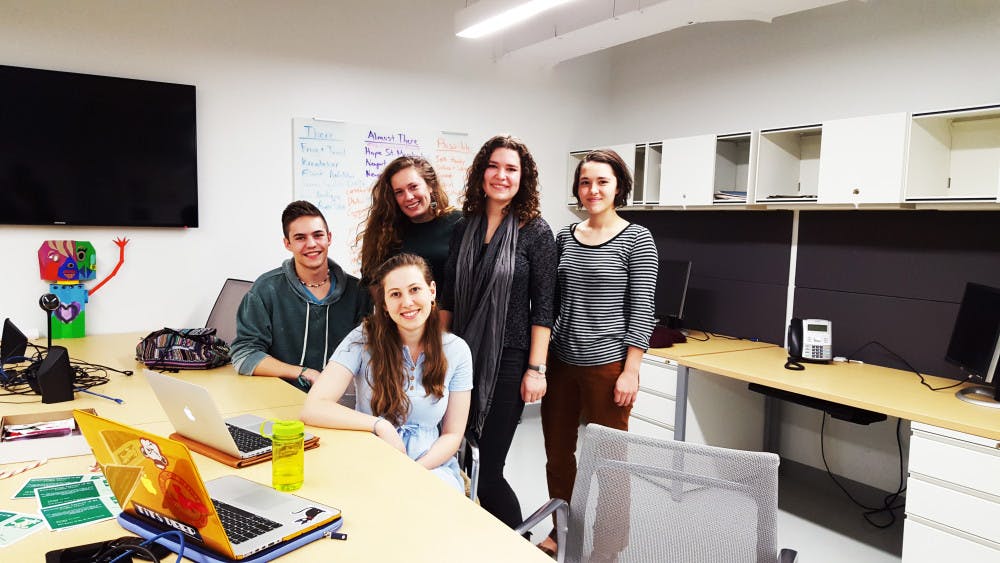Students are hoping to pass the United States’ first carbon tax, Energize Rhode Island, a bill written by Solomon Goldstein-Rose ’16. It is “a push to create a clean energy and jobs fund in Rhode Island,” said Kaya Salem ’18, coordinator and intern at Energize R.I. The bill proposes putting a fee on fossil fuel companies in the state to “make the polluters pay,” Salem said. The revenue from the fee will be used to fund programs for weatherization, energy efficiency and renewable energy, Salem said, in addition to direct rebates for businesses and households in the state.
The bill was backed by the Energize R.I. coalition — a group comprised of humanitarian organizations, businesses, environmental groups, faith groups and the Brown Democrats. Rep. Aaron Regunberg ’12, D-Providence, introduced the bill to the Rhode Island House of Representatives this session, and the bill has now garnered 40 co-sponsors, Salem said.
“From the onset, Energize R.I. was a student initiative,” Salem said, citing that Brown students both funded the organization and wrote the bill. “But since then it has become an organization of Rhode Islanders,” Salem added. Alberta Devor ’15, Dylan Elliot-Hart ’19, Hillary Brame ’19 and Mintaka Angell ’15 are among the five student interns headed by J. Timmons Roberts, technical advisor and professor of environmental studies and sociology.
The bill will reduce emissions and improve the economy, challenging the “false dichotomy between business and the environment,” Elliot-Hart said. An economic impact study by Regional Economic Models estimated that the legislation would create between 1,000 and 2,000 new jobs in just the first two years of its implementation. The study shows the bill will discourage the Ocean State’s dependence on fossil fuels, which costs the state more than $3.1 billion annually.
The bill was introduced during the last legislative session but was not passed. Student interns worked hands-on to support the coalition through activities such as refining the language of the bill and generating marketing content on social media, Angell said. She is optimistic the “moderate proposal” will pass this session due to its feasibility and “appeal to people on both sides of the political aisle, as well as people who are on all sides of the social spectrum.”
This is not the first time Brown students have been involved in the history of climate legislation in Rhode Island. In 2014, students helped pass the Resilient Rhode Island Act, which set limits on carbon emissions. Student interns researched and campaigned for the bill and were backed by the environmental studies department, Salem said.
“This could in some way be considered a follow-up bill because Energize R.I. will get us halfway to the carbon emissions targets,” Salem said.
While states such as Massachusetts, Vermont, Washington and Oregon have similar carbon tax campaigns, “I want us to be the first on this one,” Salem said. With over 400 miles of coastline, R.I. residents experience climate change firsthand every day, she said. Passing carbon tax legislation in Rhode Island could “pave the way on the national level,” she added.
“Given that climate change is one of the pressing issues of our generation, I think that we have every incentive to make sure that we are a leader in national issues,” Angell said.
The coalition hopes to see the bill passed this session due to the “level of urgency” that climate change presents to the state, the nation and the world, Elliot-Hart said. “We need to address climate change before we can’t address it anymore.”





